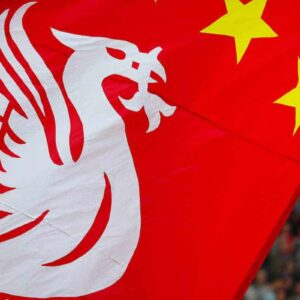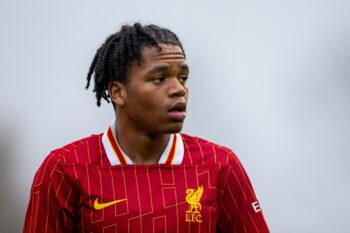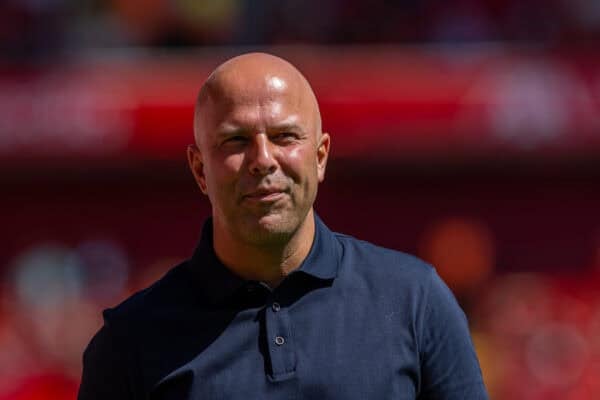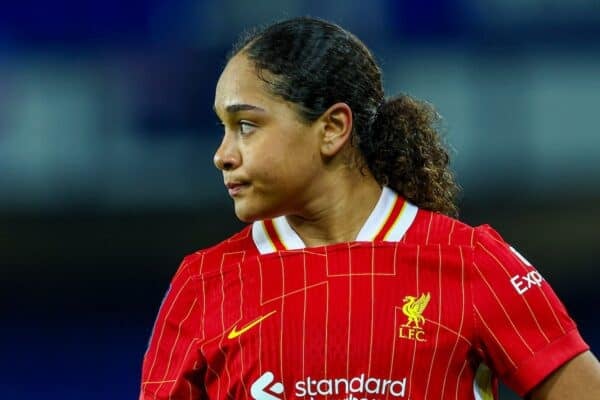Aaron White looks back at the life of Jimmy McInnes, former Liverpool defender and later club secretary.

Before kick-off at Anfield on May 4th, 1965, Gerry Byrne and Gordon Milne circled the Anfield pitch carrying the FA Cup. It had been won three days before at Wembley as Bill Shankly’s Reds beat Don Revie’s Leeds United 2-1 in extra time. Shanks had sent the injured duo out that night at Anfield to please the demanding crowd which had packed into the stands but also to show the players of Inter Milan that they had an army to defeat in the European Cup semi-final. That game had been the latest in a list of high profile games for Liverpool Football Club since Bill Shankly first walked through the doors of Anfield as manager. His impact had been emphatic and the club could not have dreamt of such a quick change in fortune.
Promotion out of the second division in 1962 was followed by an appearance in the FA Cup semi-final in 1963. In 1964 Shankly’s Reds won the first division title and a year later the FA Cup was lifted for the first time in the club‘s history. As the players left the Anfield pitch that night following the European Cup semi-final against Inter Milan, it had been only five and a half years since Bill Shankly had been appointed as manager. His guidance had propelled Liverpool from the obscurity of the second division into the English footballing elite and of course with the success, came the adulation. Support for the club was at fever pitch and attendances soared. The build-up to the 1965 FA Cup final brought thousands of letters, phone calls and visits to Anfield from people hoping and pleading for tickets, hoping and pleading for a piece of the dream, for a piece of Liverpool Football Club.
It is true that by 1965, Bill Shankly had already achieved a great deal with Liverpool but he had by no means achieved it alone. Bob Paisley, Joe Fagan and Reuben Bennett among others helped shape the team for success on the pitch but behind the doors at Anfield, in an office with a desk and a telephone – a constantly ringing telephone – Jimmy McInnes sat as the club secretary.
Jimmy McInnes was testimony to Liverpool’s family structure. An ex-player, he was signed from Scottish first division side Third Lanark in 1938 at the age of 26. He played 51 times at left-half under the then manager George Kay, scoring on his debut in a 3-1 win against Brentford. A match report of the game stated:
“The new Scottish left-back, McInnes, was not a sensation, but in his quiet play was coolness, method, and very sound positioning.”
His last official appearance for Liverpool came on May 6th, 1939, as the following season witnessed the outbreak of the Second World War and the suspension of league football after only three games. Liverpool finished 11th in his only full season at the club as a player.
After the war and his official retirement from playing in 1946, Jimmy McInnes became part of the club’s administrative staff and witnessed Liverpool win the first division title in the first full post-war league programme in 1947. He was appointed to the position of club secretary in August 1955 following Liverpool‘s relegation to the second division in 1954. He continued to serve as club secretary throughout Liverpool’s stay in the second division and was introduced to Bill Shankly at Anfield in December 1959. Two and a half seasons later Liverpool Football Club won the second division title and gained promotion to the first division. Jimmy McInnes was still club secretary.
By the time the Italian champions rolled into town in May 1965, Jimmy McInnes had been club secretary for ten years, seven of which hand been spent in the English second division. The contrast between the role of a club secretary in the second division and that of one in the first division would have been stark. Few, if any, sell-out or all-ticket events, lower attendances and less demand from the public would have meant something of a rather more straight forward daily routine for a club secretary in the second division as it was then. But Bill Shankly‘s appointment to manager inadvertently changed the role Jimmy McInnes played at Anfield.
The demands placed on him would have increased greatly upon Liverpool‘s promotion. His role as club secretary amid the success would have brought an array of different challenges and the expectations on him may well have been underestimated by those around him.
The 1965 cup final followed by the European Cup home tie with Inter Milan brought a ticketing frenzy upon Anfield and directly, upon Jimmy McInnes. He had witnessed ticketing chaos before in 1950 when Liverpool had reached the FA Cup final but he had not been club secretary then and had not been responsible for the vast array of arrangements.
Liverpool’s rapid rise in such a short period had seen his workload build up and become back-logged, reportedly by months.
Such was the intensity of his duties that he frequently resorted to spending nights in his office at Anfield, sleeping on a camp bed after twelve hour working days. Jimmy McInnes was struggling to cope with the excessive demands of his position.
One evening shortly before the 1965 cup final, Bill Shankly entered Jimmy’s office. The diminutive Scotsman was sat at his desk, surrounded by sacks filled with letters, the incessant drone of the telephone filled the air and his camp bed lay in the corner. Shankly could see how drained he was. Bill Shankly knew Jimmy McInnes could not have done anymore than he had done for Liverpool Football Club. “Still the most popular man at Anfield”, Bill Shankly had said amid the ringing telephone. “No”, Jimmy McInnes replied. “Still the most unpopular man at Anfield”.
Bill Shankly mentions Jimmy in his autobiography stating:
“Jimmy McInnes was honest and quick-tempered. He could be rude to people but only to those who deserved it. He was gentlemanly to those he respected.”
There was no doubt Bill Shankly had grown fond of Jimmy McInnes during the time they had worked together. It can only be a testament to the character of Jimmy McInnes to have gained the respect of someone like Bill Shankly because Bill Shankly valued integrity, honesty and hard work.
On the day of the Inter Milan semi-final, Jimmy McInnes had been in his office tending to the arrangements for the following Wednesday’s away leg in Milan. By all accounts he had been in buoyant mood following Liverpool’s triumph at Wembley in the FA Cup only days before. The next day, May 5th, 1965, the day after Liverpool had beaten Inter Milan 3-1 in the European Cup semi-final first leg, the telephone rang in Bill Shankly‘s house.
Jimmy McInnes was dead.
He had hung himself by the Archway turnstile beneath The Kop. He was just 53 years old and had been part of the Liverpool family for twenty seven years. He had worked and battled and strived for the cause of Liverpool Football Club right up until the very end.
The Liverpool supporters’ club secretary Arthur Mercer said at the time:
“He was a great guy to us. He must have been working under a terrific pressure during these last few months”.
A modern perspective would suggest it would be naïve to propose that he took his own life purely as a result of his mounting workload. Clearly there were issues in his life unknown to maybe even his closest loved ones. To offer any reasoning other than acute depression would be speculative at best. His wife, Joan, however, had said later that “He had been stressed and overworked for a long time”.
Jimmy McInnes gave his all to Liverpool Football Club, the city and its people, as a player and an administrator. It is this dedication with which he should be remembered.
On Sunday, September 1st, 2013, Manchester United visited Anfield in the Premier League. The game corresponded with the 100th anniversary of the birth of Bill Shankly. In honour, The Kop stood as one and displayed a mosaic of Shankly’s famous pose, his arms held aloft in triumph. Perhaps, just perhaps, beneath the feet of those Kopites, in the space below The Spion Kop, the ghost of Jimmy McInnes looked up and held his own arms aloft in triumph.
Bill Shankly made the people happy, but Jimmy McInnes was there beside him doing everything in his will to help him do so.
Jimmy’s Player Profile via LFCHistory.net


















Fan Comments